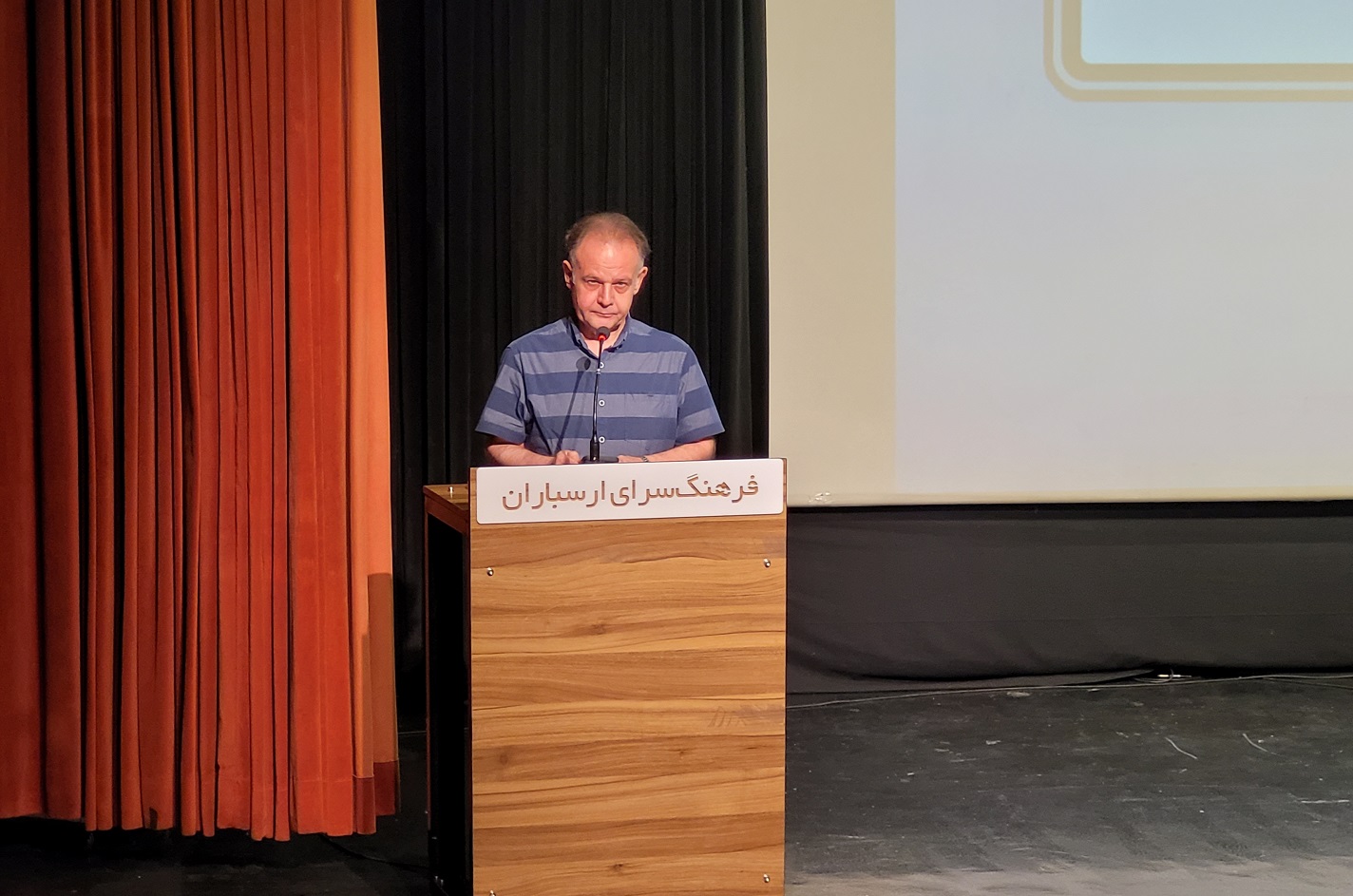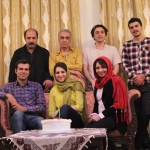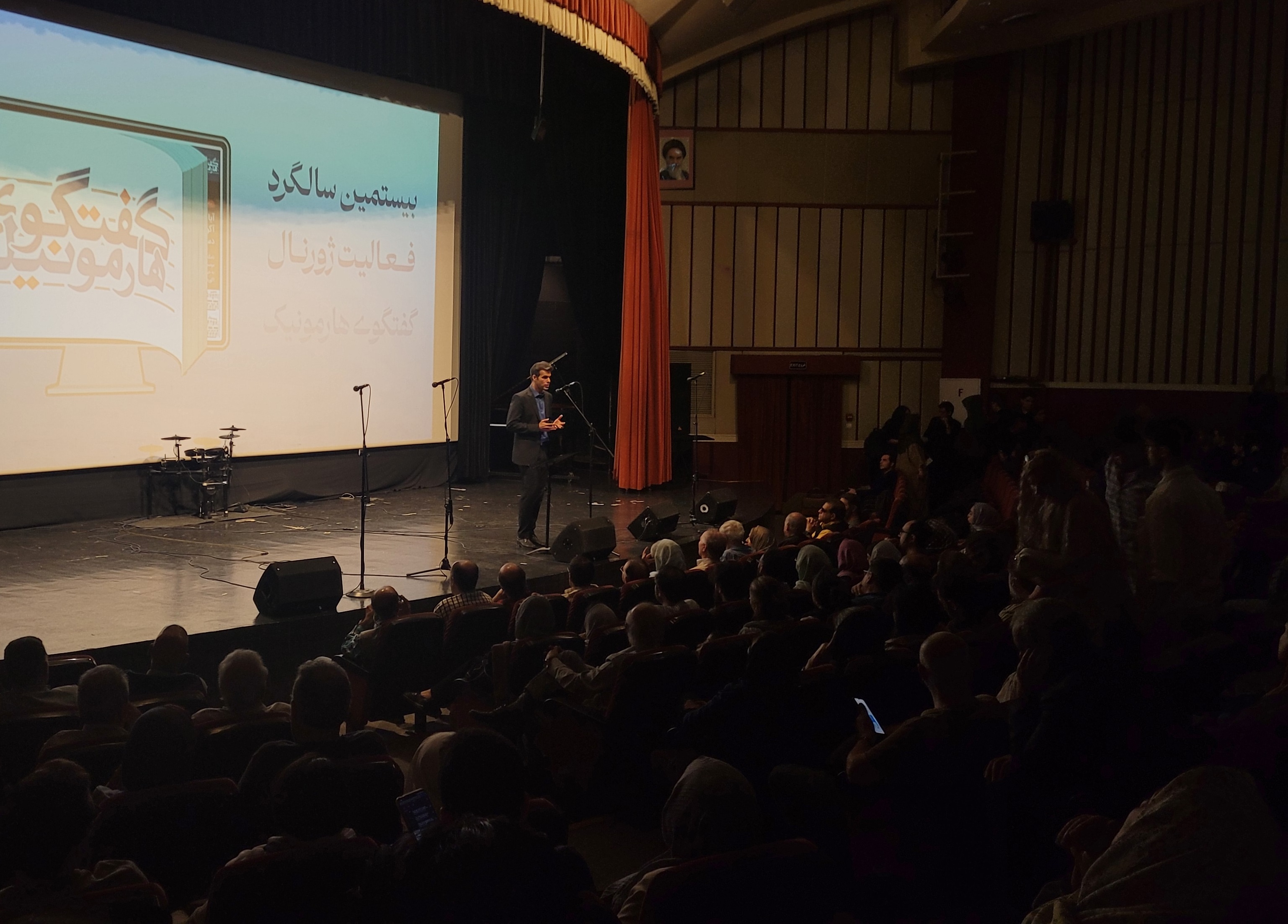
On the 10th of Khordad, 1403 (equivalent to May 30, 2024), the twentieth anniversary celebration of the online journal “HarmonyTalk” took place at the Ersbārān Cultural Center. The event garnered such interest from enthusiasts that the venue was completely filled.

At the beginning of the program, after a warm welcome by the experienced host, Sofia Monshipour, a video clip showcasing twenty years of the journal’s activities was played. Following that, the National Youth Orchestra of Iran, led by Arvin Sedaqatkish (who is also one of the authors of HarmonyTalk), performed pieces composed by Hossein Dehlavi and Parviz Meshkatian.
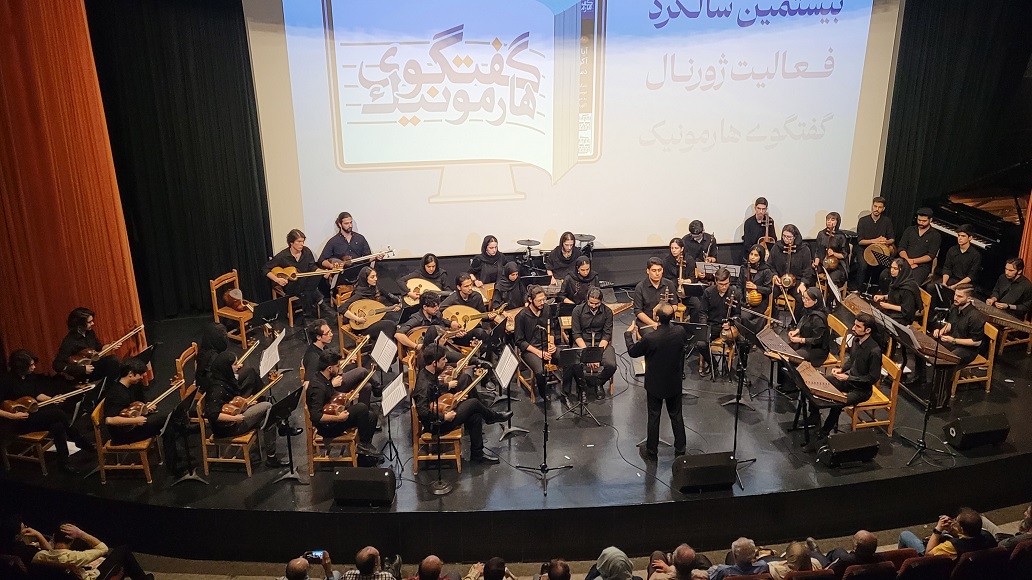
Later, Sadjad Pourqannad (the editor-in-chief of HarmonyTalk) presented a report on the journal’s two decades of activity. This comprehensive report will be published in upcoming issues of the journal.


Subsequently, Babak Khazraei was invited to speak. He emphasized the importance of sustaining HarmonyTalk’s activities and shared his initial acquaintance with the journal. Khazraei noted that over time, HarmonyTalk has evolved toward a more scholarly approach.
Khazraei also recalled how, twenty years ago, there were predictions that print magazines would soon cease to exist, and today, we see that this prediction has indeed come true.
Babak Khazraei’s Conclusion: Babak Khazraei concluded by expressing his hope to witness the magazine’s 30th and 40th anniversary celebrations and its continued operation.
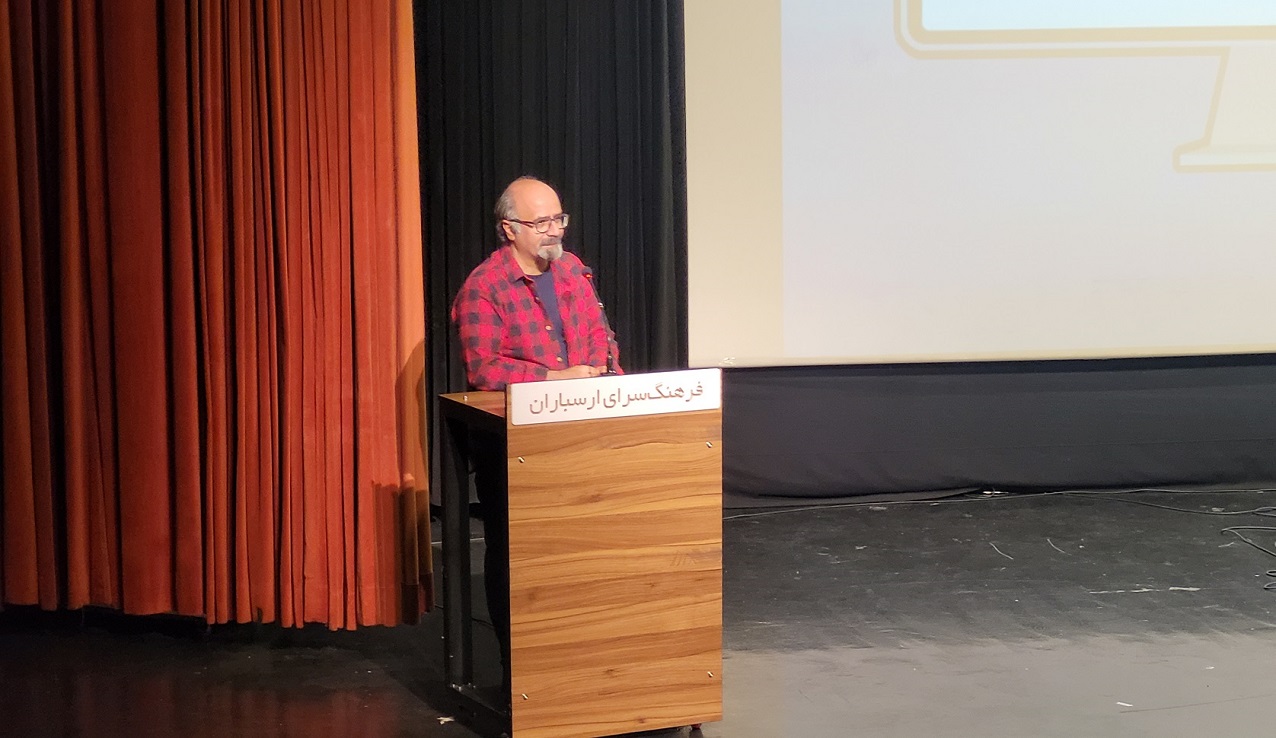
Invitation to Mohammadreza Fayyaz: After Babak Khazraei’s speech, Mohammadreza Fayyaz was invited to speak.
Fayyaz stated: “Every phenomenon, whether it be a media outlet or a group of people, is the culmination of its own era. HarmonyTalk is also a combination of two parts: harmony and talk. It signifies an era where it was believed that a harmonious dialogue could exist. The same concept that, when translated into music, emerges as polyphonic music, and in human relationships, it becomes a dialogue between people in a harmonious and affectionate manner.”
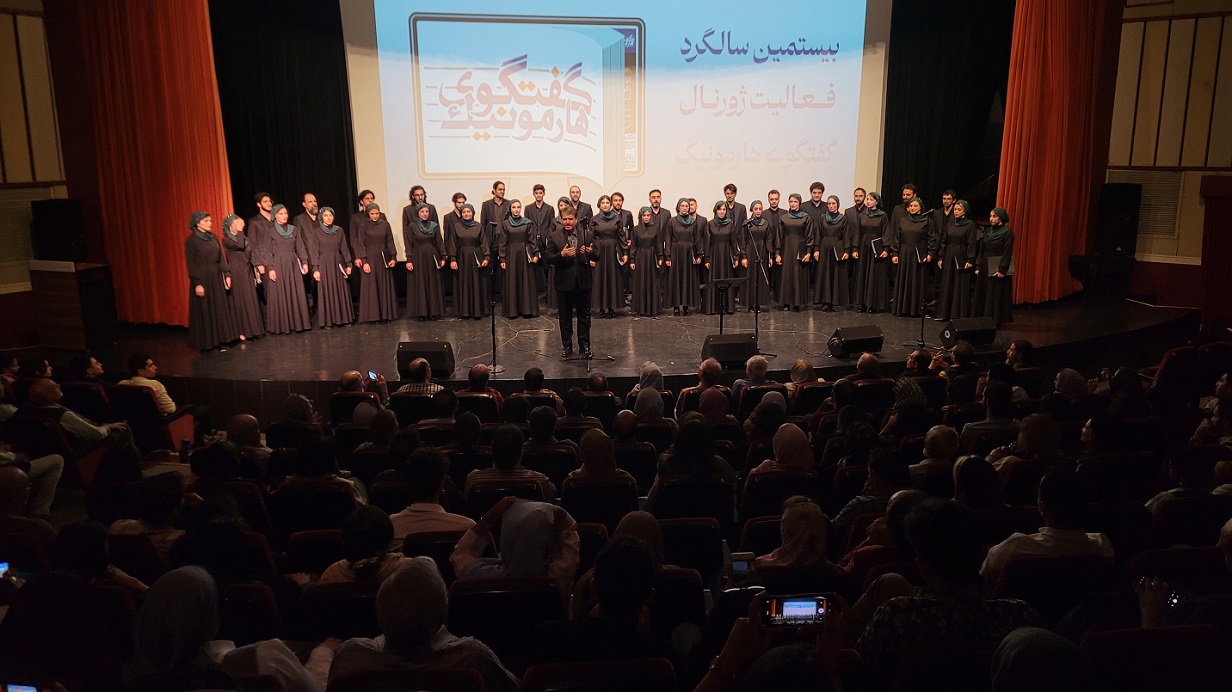
After Fayaz’s speech, the Ordibehesht Choir led by Hamid Askari was invited to perform. The program performed by this group included pieces by Hamid Askari and several folk pieces harmonized by Rubik Gregorian.
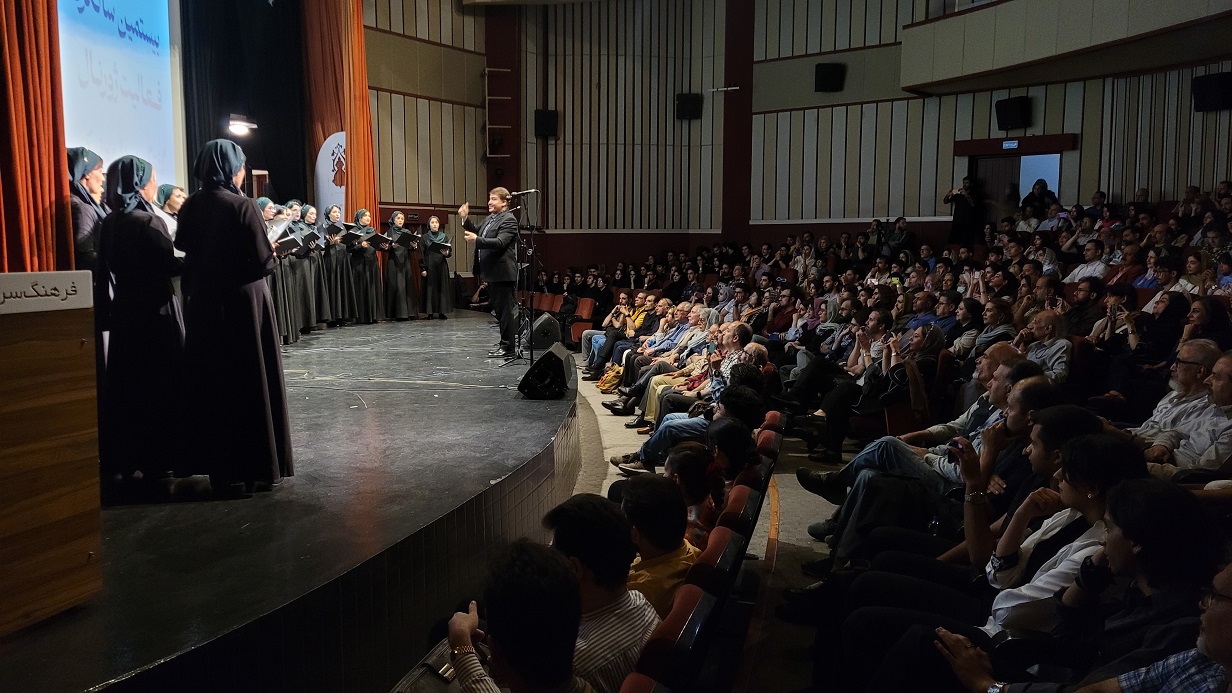
Following this performance, Alireza Miralinaghi was invited to speak. Miralinaghi, referring to the efforts of Sadjad Pourghannad, the editor-in-chief of this site, said:
“It is historically very important that we are in an era where encyclopedias no longer have practical use in their old form and have actually become non-paper and digital encyclopedias that are constantly updated. HarmonyTalk is also important and valuable for this reason because it has such a characteristic.”

Miralinaghi continued to refer to the position of HarmonyTalk in historiography and considered its quality much higher than other sites that exist today, saying: “Most of the sites we see today are misleading rather than valuable and credible.”
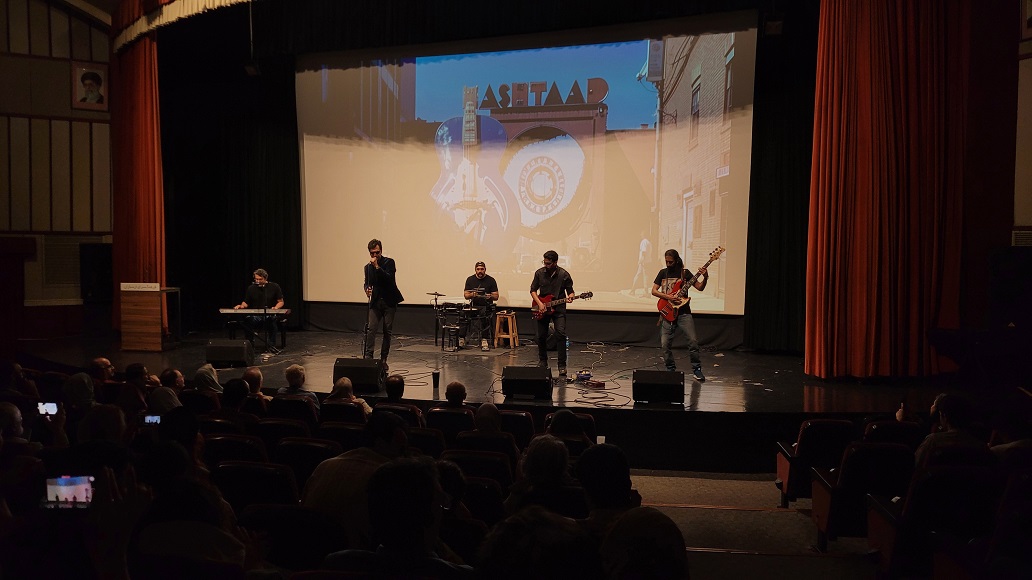
Miralinaghi further stated: “I belong to a generation before the internet and have struggled to align myself with the generation of internet audiences, and if I am active on this site today, it is because of Sadjad Pourghannad’s insistence.”
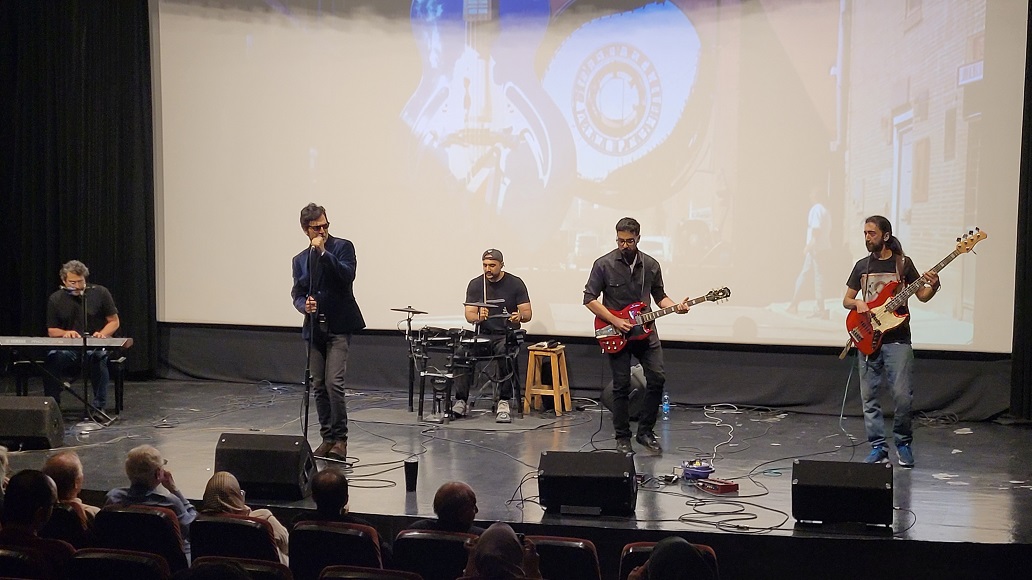
After Alireza Miralinaghi’s speech, the Eighties Band came on stage with performances of 1980s-style pop music, which concluded the celebration.
